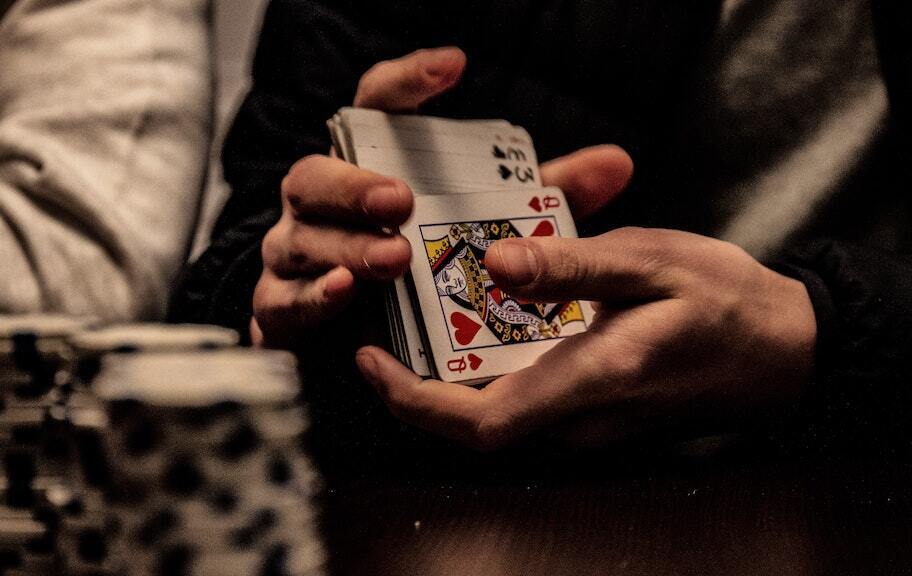- Select your poker game of choice
- Follow professional poker players
- Practice your poker skills
8 Minute Read
So you want to be a poker pro, do ya? The good news is that nowadays – this moment in time – is the best ever to make the pursuit. That’s because there are so many avenues available to you where you can learn about the game. The bad news is that it’s still very, very difficult to become a professional-level player to the point where this becomes your sole source of income.
For those who are looking to get started down this path, we’ve compiled a how-to guide to get you off on the right foot. It’s doable but it will take a lot of dedication and determination.
Pick Your Game
One of the first things you have to do when getting into poker is decide which game you’re going to play. Many people figure that poker pros are players that excel in every single version of the game but very few can pull that off. What usually happens is players specialize in different version of the game. For example, someone might focus on Omaha or Texas Hold’em or something else. If you want to find that level of success, you also need to pick one lane and stay in it.
All of the different versions of the game have different intricacies and your primary goal has to be to master your skill in one of those versions. As they say: “jack of all trades, master of none.”
Once you start winning tournaments and raking in the paydays from one type, it’s easier to expand into other realms. For now, choose one version and perfect your performance before moving on.
Learn From The Pros
If you want to learn poker, your best source of information is going to be the professionals who are willing to teach you. Back in the day, you’d mostly be limited to various books or an in-person course – if you can find that. Nowadays, there are many avenues you can take to if you want to invest in your learning.
Books
There are hundreds of great poker books on the market. Whether you want to hop on Amazon or visit a bookstore, you’ll find tons of options. Check out reviews online to find the ones that are most recommended. Also, don’t forget about public libraries. They’re a great resource to get your hands on the book at the wonderful cost of free.
YouTube
There are seemingly infinite hours of content on YouTube where you can learn how to play poker. The beauty of YouTube is there will be videos that show you how to master the game from the basics to the body language to advanced strategy. Whatever topic you want to explore, it’s covered on YouTube. Also, make sure to check the comments as there is a lot of wisdom shared there too.
Twitch
Twitch is a live-streaming social platform where you can watch people play poker. That’s really handy as it gives you a taste of what decisions they make and why they make them. The best people to follow are the pros as they will usually share the most wisdom. It’s always good to get first-hand experience playing the games yourself but this is a close second-best in terms of second-hand action.
Classes
Some people learn from books and watching, some people learn better in a classroom setting. If you’re the type of person who ingests the information better in an organized, regimented setting, take a class on poker might be right for you. There are tons of options either in-person locally, flying to Las Vegas for different seminars or simply signing up online at something like MasterClass. The world is your oyster in terms of poker classes these days.
Practice, Practice, Practice
While there are a lot of ways where you can learn the game and get a feel for what to expect, nothing replaces experience. Simply put: the more you play, the better you’ll get.
About 20 years ago, the only places where you’d get the experience of playing in a real, live poker game would either be some underground, local game or casinos (mostly Las Vegas). Of course, these are still great options nowadays but going online is really your – pardon the pun – best bet. The reason for it is because you can get your phone or open up your laptop and start playing at any time of day. In Las Vegas or with locals, you have to set a schedule, find a venue and gather people in one place. When you play online, none of that’s a concern. People are logged in from all around the world to play against each other.
The other beauty of playing online poker is that you can play multiple games at once. The key to gaining enough experience is playing through the different permutations of hands. When you’re playing in person, if you throw away your cards, you have to wait until that hand plays out to get your next pair of cards. If you get crappy cards again, then your wait starts all over again. Of course, poker is a game of patience but you can spend a lot of time being patient. When you play online, you can actually sit at multiple tables and play multiple hands at once. That way you can speed things and see more hands.
They say it takes 10,000 hours to master a skill. If that’s the case, you better get started.
Track Your Performance
One of the ways to know where you are on the spectrum from “beginner” to “expert” is to monitor your progress. If you don’t bother setting up a little diary, checkpoints or any other form of tracking to observe your performance, how will you know you’re heading in the right direction?
To measure your growth, keep a log. That can include how much you’ve invested in poker in a given timeframe – say a week or a month – and then also include a section on time. After all, you’re not only investing money to play; this isn’t the stock market. You are also investing your time.
From there, keep an eye on whether you’re winning, how much and with what games. You might also want to keep a separate diary with notes that you’ve learned. Some people delve even deeper and go back and track previous tournaments, previous hands and previous decisions they’ve made.
The more data points you track, the more you’ll be able to see how far you’ve come. You’ll also be able to see where you need to improve. Sure, this is a bit of an arduous process but it’s an important one. Absent of tracking, you’ll have some growth but you won’t hit that expert level.
Have A Backup Plan
Sure, everyone wants to be a poker pro these days. It’s a sexy career field – especially once you win the World Series of Poker main event, right?
The issue is that becoming a poker pro is like becoming a rock star or a professional athlete. Is it possible? Absolutely. Do many people have the passion, dedication and skill? Definitely not.
It’s important to be realistic and to have a bit of perspective. Yes, you’re going to do everything in your power to make this work. You’ll study, you’ll learn and you’ll track. However, if you still come up short, it’s important to have a backup plan.
Keep in mind you can still work in a field related to poker while you pursue that career. For example, you could get a job in a casino or write for a poker site or assist with poker television production. That’s just a few options that come to mind. That way, you’re still in that realm should your dream of being a poker pro fall through.
At any rate, you want to have some kind of backup plan – a career, an education, a path of some sort – because making a living from poker alone is a grind. You can do it but keep in mind that historically, only about 30% of poker players are winners and only about 10% earn life-changing amounts. If you don’t make it into that 10%, you want to have something you can fall back on.








